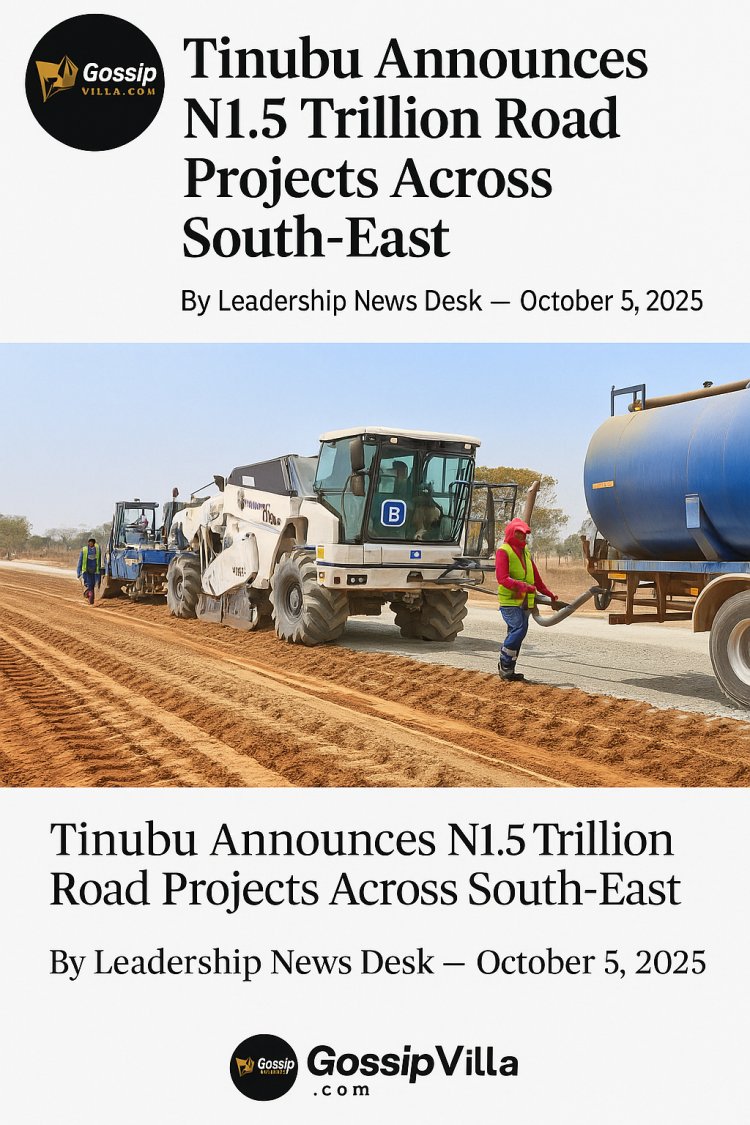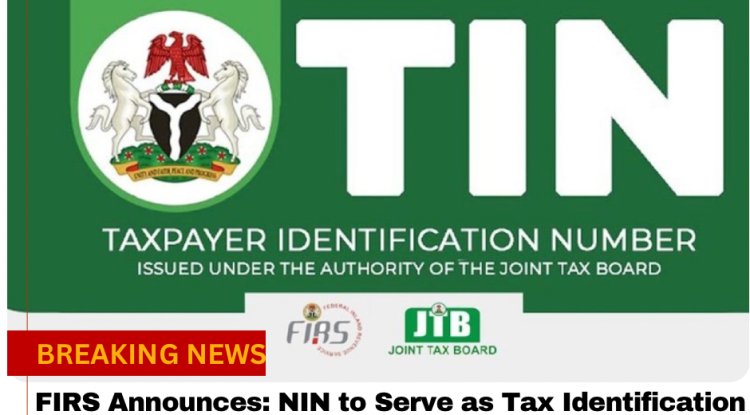Tinubu Unveils ₦1.5 Trillion Road Projects to Transform South-East Infrastructure
Tinubu Unveils ₦1.5 Trillion Road Projects to Transform South-East Infrastructure
Tinubu Announces ₦1.5 Trillion Road Projects Across South-East
President Bola Ahmed Tinubu has unveiled a landmark infrastructure initiative, committing approximately ₦1.5 trillion to road projects across Nigeria’s South-East region, signaling a renewed focus on equitable development in the area. Announced on October 5, 2025, during a high-profile address, the investment encompasses major corridors and federal highways designed to enhance economic connectivity among the five Igbo-dominated states: Abia, Anambra, Ebonyi, Enugu, and Imo. This move comes amid broader national efforts to revitalize transportation networks, with the projects poised to stimulate trade, create employment opportunities, and foster regional integration. As Nigeria marks its 65th independence anniversary, Tinubu’s pledge underscores his administration’s “Renewed Hope” agenda, emphasizing infrastructure as a catalyst for inclusive growth. This article examines the scope of the projects, their economic implications, the role of key stakeholders, and the potential for transformative impact in the South-East.
A Comprehensive Blueprint for South-East Connectivity
The ₦1.5 trillion allocation covers a diverse array of road initiatives, with the 56-kilometre Aba–Umuahia section of the Enugu–Port Harcourt Expressway serving as a flagship project. This critical stretch, vital for linking industrial hubs in Abia State to the oil-rich Port Harcourt, addresses longstanding bottlenecks that have hindered commerce and mobility. Additional projects include the rehabilitation of the Enugu-Port Harcourt Road Section III (Enugu-Lokpanta), a new bridge at Akpoha in Ebonyi State to replace a near-collapsed structure, and the reconstruction of the collapsed Enugu Bridge at the New Artisan Market along the Enugu-Port Harcourt Road.
Further enhancements target federal highways connecting agricultural powerhouses like Owerri and Onitsha to urban centers, as well as extensions toward North-Central routes such as the 118.85-kilometre superhighway from Afikpo in Ebonyi through Benue to Abuja. President Tinubu highlighted these as part of a holistic strategy to dismantle infrastructural isolation, noting that the projects will reduce travel times, bolster supply chains, and open access to markets. With contracts already awarded and sites mobilized, the initiative builds on earlier approvals, including a ₦445.8 billion review for expanded corridors announced in July 2025, ensuring a phased rollout that prioritizes urgency and quality.
Tinubu’s Commitment to Inclusive National Development
President Tinubu framed the announcement as a testament to his administration’s dedication to bridging regional disparities, particularly in the South-East, which has historically faced marginalization in federal allocations. “This investment is not just about roads; it’s about reconnecting our people, reigniting economic vitality, and fulfilling the promise of a united Nigeria,” Tinubu stated, emphasizing job creation for thousands of locals through construction phases. The projects align with his October 1, 2025, Independence Day address, where he touted a 4.23% GDP growth in Q2 2025—the fastest in four years—and a trade surplus of ₦7.46 trillion, attributing these gains partly to infrastructure-led recovery.
By prioritizing the South-East, Tinubu aims to counter narratives of exclusion, especially following the 2023 elections where the region largely supported opposition candidates. The initiative also ties into national milestones, such as the commissioning of the Lagos–Calabar Coastal Highway’s first phase and over ₦787 billion approved for roads in 13 states in July 2025. This strategic emphasis on the South-East could enhance Tinubu’s political goodwill, fostering a sense of inclusion while driving tangible progress in a region renowned for its entrepreneurial spirit.
Minister Umahi’s Role in Driving Infrastructure Renewal
Minister of Works David Umahi, a former Ebonyi State governor from the South-East, has been instrumental in championing these projects, describing them as a “new dawn for infrastructure renewal.” In August 2025, Umahi revealed that the administration had already invested over ₦1 trillion in South-East roads, bridges, and developments, with an additional ₦1.3 trillion earmarked for current and new contracts. His directive to regional directors to compile ongoing and inherited projects ensures transparency and accountability, allowing Nigerians to appreciate the scale of federal interventions.
Umahi’s hands-on approach includes terminating underperforming contracts—such as the February 2025 revocation with Reynolds Construction Company for slow progress on key routes—and reawarding them to efficient firms like Mssrs JRB Construction Co. Under his stewardship, monthly funding commitments of ₦20 billion have accelerated works, with ₦17 billion released by March 2025 and an extra ₦33 billion allocated. Umahi’s South-East roots add authenticity to the efforts, positioning him as a bridge between federal ambitions and regional needs, while his engineering background guarantees technical rigor in execution.
Economic and Social Impacts on the Horizon
The ripple effects of these ₦1.5 trillion projects extend far beyond asphalt and bridges, promising a surge in economic activity across the South-East. Enhanced road networks will facilitate the transport of agricultural produce from rural farms to urban markets, reducing post-harvest losses estimated at 40% annually and boosting farmer incomes. Industrial zones in Aba and Onitsha, hubs for textiles and manufacturing, stand to gain from improved logistics, potentially attracting foreign direct investment and aligning with Tinubu’s diversification goals amid a record ₦20 trillion non-oil revenue by August 2025.
Socially, the initiatives will promote safer travel, curtailing accident rates on dilapidated routes and enabling better access to healthcare and education. Job generation—spanning engineering, labor, and supply chains—could employ over 50,000 workers, empowering youth in a region grappling with unemployment. As the Federal Government vows timely completion, these projects reinforce Tinubu’s narrative of “renewed hope through connectivity and growth,” potentially setting a precedent for balanced development nationwide. With monitoring mechanisms
in conclusion the South-East’s transformation could herald a new era of prosperity, mending historical divides and propelling Nigeria toward sustainable progress.
News source: vanguard news , opera news
What's Your Reaction?






















